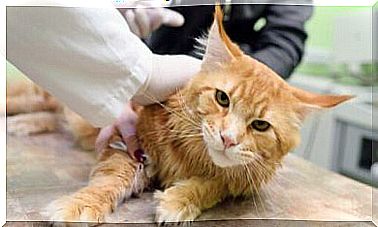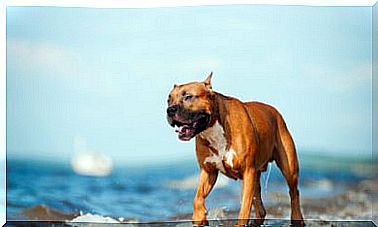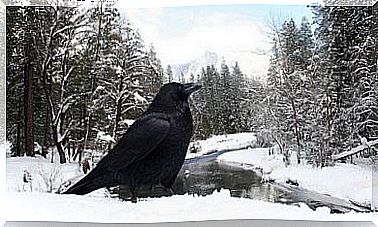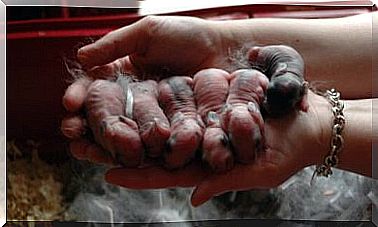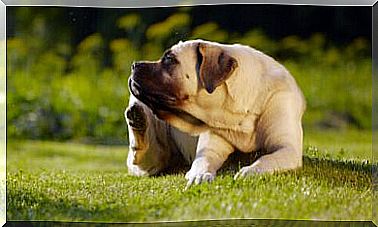5 Reasons Why A Dog Shakes
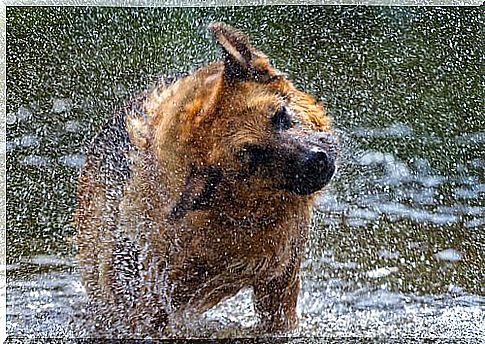
All pet owners have certainly seen, more than once, their dog shake from head to tip of tail. While this behavior is normal, on some occasions it can also appear as a symptom of some discomfort. In this article we will show you the main reasons why a dog shakes, so that you can take action on the causes to solve the problem.
To avoid risks, it is important to know why the dog shakes and to recognize when this habit is a cause for concern. In order to help you know when to seek help from a veterinarian, in this article we will cover the main causes of this particular behavior that affects many pets.
5 reasons why your dog shakes
As mentioned, there’s not just one reason for your dog to shake. This way of doing can appear for several reasons and it is important to consider the frequency and context in which it occurs. You also need to know how to recognize the presence of some other symptom.
1. The dog shakes after a bath
This is the most common and largely justified reason. With this movement, the animal simply tries to dry itself from the water or rain. It is estimated that by shaking their body, dogs can eliminate up to 70% of the water accumulated on their skin and fur.
They have an instinctive need to dry themselves for different reasons. First, because the hair is much heavier when wet, which hinders mobility and generates some discomfort. When shaking, the dog gains an immediate advantage, relieves itself and can regain its agility.
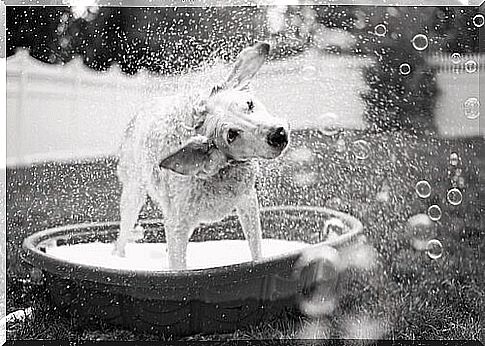
On the other hand, on hot days, dogs love to cool off from the heat. But that doesn’t mean they like to feel wet for a long time. Humidity, combined with high temperatures, creates a kind of “greenhouse effect” that is annoying for dogs.
In addition, this warm and humid microclimate favors the proliferation of bacteria, fungi and yeasts, which can damage your pet’s health.
For all this, you must not forget to always dry your dog’s fur thoroughly, paying particular attention to the ears.
2. The dog shakes and scratches often
If the dog fidgets and even tries to scratch or rub against the ground, it can mean the presence of external parasites. Mites, ticks, or fleas can settle on your dogs’ skin and suck their blood for nutrients.
External parasites not only cause itching but can also trigger allergies, inflammation, and serious illness.
To avoid the risk of infections, it is essential to provide periodic deworming to your best friends.
In pet stores, there are numerous pesticide products and treatments, such as collars, pipettes, sprays, soaps, etc.
3. Does the dog spend a lot of time outdoors?
Dogs that usually spend long hours outdoors can come into contact with many impurities or allergens (pollen, dust or mold).
In addition, they enjoy playing in the earth, rolling over on the lawn or fallen leaves.
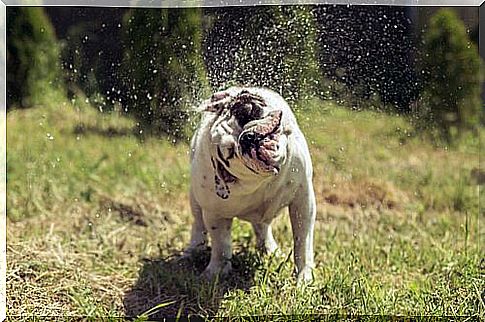
All of this can soil the dog’s fur, causing itching. Therefore, if your dog is used to playing outside and does not mind getting dirty for fun, he will shake to clean himself.
4. Possible excess of anxiety or stress
Dogs living in a negative environment or experiencing a sedentary routine can develop symptoms of stress and boredom. Unable to positively discharge their energy, they accumulate tension and look for possible relief valves to release it. Therefore, stress can lead to changes in their behavior and habits.
When munching, many dogs feel relieved, they are able to relax their muscles and release tension. In these cases, this allows him to improve his mood and feel better. This is a reminder that these animals need to exercise daily to maintain body health and mind balance.
5. Does the dog shake his head and ears a lot?
Usually, when dogs shake their heads intensely, it means they feel some discomfort in their ears. One possible cause could be an infection or inflammation of the ear canal (otitis). This constant shaking can also be caused by the presence of a foreign body in the ear.
So, if you notice that the dog is shaking his head a lot, it is important to gently check his ears.
It will be better to take him quickly to the trusted vet, who will proceed to make an adequate diagnosis.
